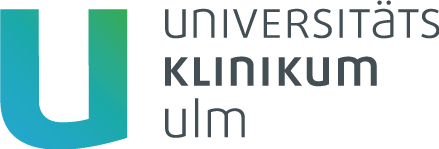The Laboratory for Molecular Psychosomatics headed by Prof. Dr. Stefan O. Reber at the Department of Psychosomatic Medicine and Psychotherapy offers a position for a:
PhD candidate or Medical Research Assistant (f/m/d)
The University Hospital Ulm and its employees stand for a modern and high quality patient care, excellent university research and medical education focused on the future as well as apprenticeships in attractive professional fields. The requirements for this are qualified and committed employees.
as part of DFG sponsored project beginning in January 2026 limited for three years. The Title of the project is: Effects of Lactobacillus reuteri DSM 17938 on the acute psychological, endocrine and immunological stress response in healthy city dwellers.
Both preclinical and clinical data support the hypothesis that an excessive and inadequately regulated inflammatory stress response is causally involved in the development of many stress-associated disorders. This is consistent with studies showing that stress-associated disorders are more prevalent in urban than in rural areas and that healthy male subjects who grew up in an urban environment (=URBANs) without contact with household pets show a more pronounced inflammatory response to a standardized laboratory stressor (=“Trier Social Stress Test”; TSST) than subjects who grew up on a farm with regular contact with livestock. An innovative research approach is therefore to increase an individual's immunoregulatory capacity in order to promote stress resilience. In own preclinical studies, we have already shown that the induction of regulatory T cells (Tregs) through repeated administration of various heat-inactivated non-tuberculous mycobacteria significantly increases stress resilience in mice. In the current DFG-funded study these promising preclinical results should now be translated to the human situation by investigating the stress-protective effects of the probiotic Lactobacillus reuteri DSM 17938 in healthy URBANs. Nowadays, L. reuteri DSM 17938 is becoming increasingly rare in both the gut flora and breast milk, which is at least in part due to the urban lifestyle (i.e., low-fiber diet, antibiotics, drinking water treatment, increase in the rate of cesarean births, etc.) of the Western, industrialized world. Thus, in modern industrialized cities, contact with immunoregulatory “old friends” is significantly reduced, which could explain the overactivity of the immune system towards harmless environmental allergens (i.e., allergies), the body's own antigens (i.e., autoimmune diseases), but also social stressors (i.e., psychosomatic illnesses), observed primarily in urban areas. If our hypothesis is confirmed, this could lead to an innovative, unconventional, and promising therapeutic and prophylactic approach to more effectively combat stress-related illnesses in the near future.
Both preclinical and clinical data support the hypothesis that an excessive and inadequately regulated inflammatory stress response is causally involved in the development of many stress-associated disorders. This is consistent with studies showing that stress-associated disorders are more prevalent in urban than in rural areas and that healthy male subjects who grew up in an urban environment (=URBANs) without contact with household pets show a more pronounced inflammatory response to a standardized laboratory stressor (=“Trier Social Stress Test”; TSST) than subjects who grew up on a farm with regular contact with livestock. An innovative research approach is therefore to increase an individual's immunoregulatory capacity in order to promote stress resilience. In own preclinical studies, we have already shown that the induction of regulatory T cells (Tregs) through repeated administration of various heat-inactivated non-tuberculous mycobacteria significantly increases stress resilience in mice. In the current DFG-funded study these promising preclinical results should now be translated to the human situation by investigating the stress-protective effects of the probiotic Lactobacillus reuteri DSM 17938 in healthy URBANs. Nowadays, L. reuteri DSM 17938 is becoming increasingly rare in both the gut flora and breast milk, which is at least in part due to the urban lifestyle (i.e., low-fiber diet, antibiotics, drinking water treatment, increase in the rate of cesarean births, etc.) of the Western, industrialized world. Thus, in modern industrialized cities, contact with immunoregulatory “old friends” is significantly reduced, which could explain the overactivity of the immune system towards harmless environmental allergens (i.e., allergies), the body's own antigens (i.e., autoimmune diseases), but also social stressors (i.e., psychosomatic illnesses), observed primarily in urban areas. If our hypothesis is confirmed, this could lead to an innovative, unconventional, and promising therapeutic and prophylactic approach to more effectively combat stress-related illnesses in the near future.
We offer:
- attractive salary and benefits are provided according to the German TV-L system (65%) or TV-Ä system (50 %)
- Offers to reconcile family and career, e.g. in-house kindergarten and crèche
- staff residence and subsidized public transport
- Company health promotion (e.g. cooperation with various fitness studios)
- Wide range of corporate benefits/privileges
An ideal candidate has:
- a background and/or strong interest in Psychoneuroimmunology
- sound knowledge in stress physiology and immunology
- extensive laboratory experience
- experience in performing clinical studies
- excellent German speaking and writing skills, as study participants will mostly be German speaking
- high motivation level to participate in goal-oriented research appoaches
- strong communication skills
- excellent team working skills
 Contract: limited
Contract: limited
 Level of employment: part-time
Level of employment: part-time
 application deadline: 30.11.2025
application deadline: 30.11.2025

